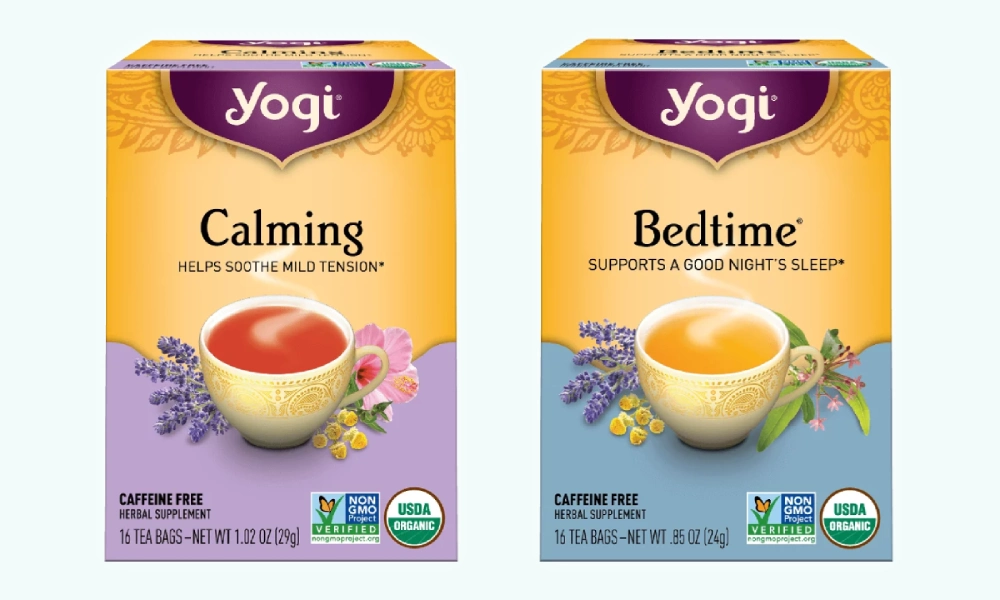Yogi Tea stands as a beacon in the world of wellness teas. It is renowned for its delightful blends that soothe the palate and promote holistic well-being.
There is a common question among tea lovers: where is Yogi tea actually made? Let’s find out its manufacturing location.
Yogi tea is extensively made in the USA and Italy. The company has manufacturing facilities in Eugene, Oregon, and Imola, Italy.
The collaboration between the Oregon and Imola facilities epitomizes Yogi Tea’s global reach and its dedication to delivering exceptional tea experiences to consumers worldwide.

Marking a significant transition, Yogi moved its American manufacturing base from Springfield to a new, state-of-the-art facility in Eugene. In addition to the main production hub, Yogi Tea maintains a satellite sales and marketing office in Portland, Oregon.
On the contrary, the facility in Imola is more than just a European base; it’s a hub of innovation and quality, where over half a billion Yogi Tea bags are produced annually.
The Story Behind Yogi Tea
Yogi Tea was founded in 1984 on the principle that wellness stems from a balance between mind, body, and spirit. This philosophy is reflected in every blend they create, aiming to offer more than just a soothing beverage.
The roots of Yogi Tea trace back to a rich heritage steeped in ancient Ayurvedic tradition. Yogi Bhajan, an inspirational teacher of holistic living, formulated the tea blend in the late 1960s.
Over the years, Yogi Tea has evolved, but its core commitment to Ayurvedic principles, quality ingredients, and mindful living remains unchanged. The original recipes, infused with traditional Ayurvedic spices and botanicals, are the precursors to Yogi Tea.
The transformation of Yogi Tea began humbly, with a small group of students savoring homemade teas, and it has become a well-known global wellness tea brand.
Each product in its extensive range is a nod to this legacy, continuing to blend ancient wisdom with modern needs.
Who Makes Yogi Tea?
The actual manufacturing of Yogi Tea is primarily handled by TeaPak in Imola, Italy, and East West Tea Company, LLC, in the United States.
TeaPak, located in the heart of Italy’s ‘Packaging Valley,’ plays a pivotal role in the production process. This facility is responsible for blending and packaging over half a billion tea bags annually.
In the United States, East West Tea Company, LLC, a subsidiary of Yogi Tea, oversees the production and distribution of tea in North America. This facility mirrors the brand’s commitment to organic and sustainable practices, operating in a LEED-certified building.
At the heart of Yogi Tea’s production are skilled herbalists and master blenders. These experts bring a wealth of knowledge in traditional herbal practices and modern nutritional science, ensuring that each blend is delicious and beneficial for health.
Together, TeaPak and East West Tea Company, LLC, embody the essence of Yogi Tea’s production ethos, combining traditional herbal wisdom with modern manufacturing practices to deliver a healthful and ethically produced product.
Who Owns Yogi Tea?
Yogi Tea, a brand deeply rooted in wellness and holistic health, is owned by East West Tea Company, LLC. This transition in ownership took place in 2008, marking a significant milestone in the brand’s history.
The ownership of East West Tea Company, LLC upholds the legacy of Yogi Bhajan, the inspirational teacher and entrepreneur who originally introduced the unique Ayurvedic tea blends to the Western world.
Under the supervision of East West Tea Company, LLC, Yogi Tea has not only sustained its reputation for quality and integrity but has also grown into a globally recognized brand.
Production Process of Yogi Tea
At the heart of the production process is the careful selection of ingredients. Yogi Tea sources high-quality, organic herbs, spices, and botanicals worldwide, emphasizing sustainability and ethical practices.
Once sourced, these ingredients undergo a precise blending process. Expert blenders at Yogi Tea combine these elements based on ancient Ayurvedic recipes, adjusted to meet contemporary tastes and health needs.
After blending, the teas are carefully packaged to preserve their freshness and potency. It is crucial, as it ensures that the flavor and therapeutic qualities of the tea are maintained from the production line to the consumer’s cup.
The production process of Yogi Tea is a meticulous blend of tradition and modernity, ensuring each cup offers the perfect balance of flavor and health benefits.
Yogi Tea’s commitment to quality is evident in every step of this process, from the initial ingredient selection to the final product that reaches tea enthusiasts worldwide.
Sourcing And Ingredients
Yogi Tea’s dedication to quality is deeply rooted in its approach to sourcing ingredients. The brand meticulously selects the finest organic herbs, spices, and botanicals from specific regions known for their quality and sustainability practices.
These ingredients are sourced globally, from the lush fields of India, known for its rich Ayurvedic heritage, to the vibrant landscapes of Europe and South America, where traditional herbal knowledge is passed down through generations.
Key ingredients like ginger, traditionally used for its warming and digestive properties, are sourced from India. At the same time, soothing chamomile is often brought in from Egypt, which is renowned for its high-quality chamomile flowers.
Turmeric, another staple in many Yogi Tea blends, is typically sourced from regions in India and Indonesia, known for their rich, potent turmeric.
This global sourcing strategy is not just about finding the best ingredients but also aligns with Yogi Tea’s commitment to ethical practices.
Conclusion
The evolution of Yogi tea under the ownership of East West Tea Company, LLC, and its production by TeaPak and East West Tea Company highlights its dedication to maintaining the integrity and purity of its products.
Yogi Tea remains a symbol of holistic health and wellness, offering a cup of tea that is much more than just a beverage – it’s an experience that nurtures the body, mind, and spirit.